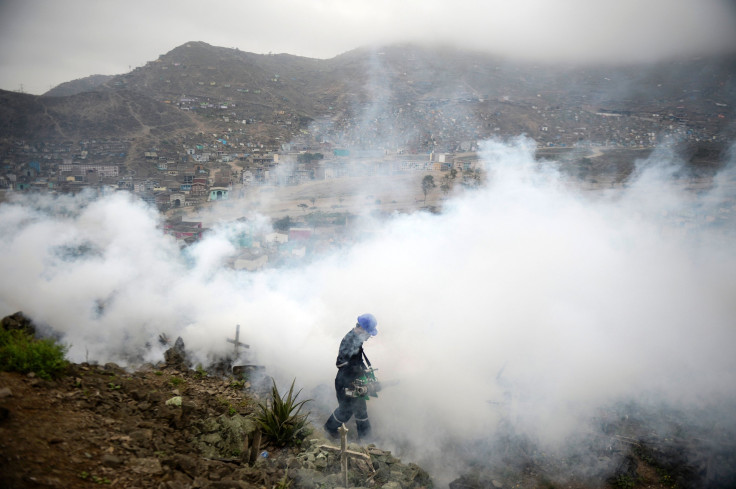Zika Virus: CDC Issues Travel Warning For Pregnant Women

The Centers for Disease Control and Prevention (CDC) issued a travel alert late Friday, advising pregnant women to postpone travel to 14 countries and territories in the Americas affected by the Zika virus. The advisory comes amid concerns that the infection, spread by the Aedes mosquito, may be linked to birth defects in thousands of babies in Brazil.
“Out of an abundance of caution, CDC recommends special precautions for pregnant women and women trying to become pregnant,” the U.S. health agency said, in its advisory. “Pregnant women in any trimester should consider postponing travel to the areas where Zika virus transmission is ongoing … [and] women trying to become pregnant who are thinking about becoming pregnant should consult with their healthcare provider before traveling to these areas.”
The advisory applies to the following countries and territories: Brazil, Colombia, El Salvador, French Guiana, Guatemala, Haiti, Honduras, Martinique, Mexico, Panama, Paraguay, Suriname, Venezuela, and the Commonwealth of Puerto Rico.
The virus, which was until recently limited to a handful of countries in equatorial Africa and Asia, first appeared in Brazil in May. Since then, an estimated 1.5 million people are believed to have been infected.
Although Zika infections normally cause mild symptoms, such as fever, rash, joint pain, and conjunctivitis, or no symptoms at all, health officials in Brazil are concerned because the latest outbreak has corresponded with an drastic increase in the rate of microcephaly, a birth defect in which babies are born with small heads and undeveloped brains.
Officials in the country said last week that they were investigating more than 3,500 cases of microcephaly in newborns, reported between October and January. By comparison, until 2014, the country normally reported about 150 cases of microcephaly each year.
While the exact correlation between a Zika infection and microcephaly is still not clear, officials believe that pregnant women who are bitten by infected mosquitoes may be transmitting the virus to their fetuses through the placenta.
“However, additional studies are needed to further characterize this relationship,” the CDC said, in the statement. “More studies are planned to learn more about the risks of Zika virus infection during pregnancy.”
© Copyright IBTimes 2024. All rights reserved.






















